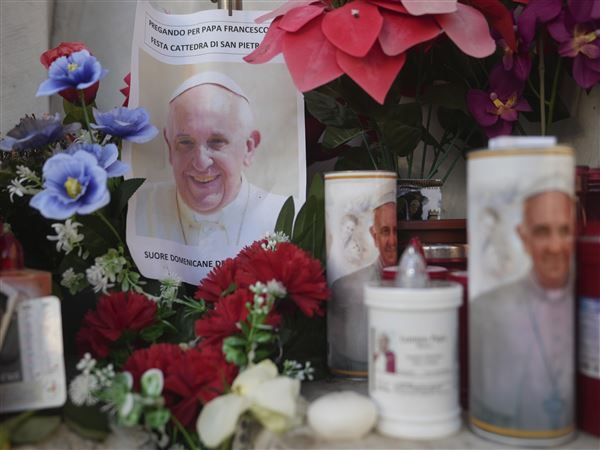On her album “Easter,” released in 1978, Patti Smith included a spoken-word track entitled “Babelogue.” If I may paraphrase the expletive-y opening couplet, Ms. Smith brags that it isn’t the past that interests her, but the future that she’s set her provocative sights on. A year prior to the record’s release, during a concert in Tampa, Fla., Ms. Smith, in a sort of dervish frenzy, accidentally spun herself right off the stage, dropping to the concrete floor 15 feet below.
Alfred A. Knopf ($24.95).
The writer Jim Marshall, present at the show, described the event in the pages of “Please Kill Me,” an indispensable and often hilarious oral history of punk rock, “Patti literally twirled right off the stage — backwards.” He continues, “Patti hit the base of her neck on these two by fours in the pit — BANG. Then flopped up and hit the back of her head — a second shot on the floor. ... She was twitching and there was blood everywhere, and it looked like she had a broken neck.”
Patti Smith broke several vertebrae in her neck as a result of the violent impact. After her brush with death she would release only one more record, 1979’s subdued “Wave,” before removing herself from the glaring spotlight of rock ’n’ roll to marry and raise a family with Fred ‘Sonic’ Smith.
She might be better known these days as the writer of a series of elegiac memoirs rather than the punk rock love-child of Jim Morrison and Arthur Rimbaud. Her latest book, “Year of the Monkey,” is sister to “M Train” (2015) and shares in the same quiet, melancholic mood. The young woman who enthusiastically poked at the status quo with her insurgent music in a bid to shape the future, as “Babelogue” had it, finds herself in her 70s as an explorer on the outer rim, the future she challenged bearing down on her life in its ultimate guise — human mortality.
Ms. Smith writes, “Marcus Aurelius asks us to note the passing of time with open eyes. Ten thousand years or ten thousand days, nothing can stop time, or change the fact that I would be turning seventy in the Year of the Monkey. Seventy. Merely a number but one indicating the passing of a significant percentage of the allotted sand in an egg timer, with oneself the darn egg.”
Nothing much happens in “Year of the Monkey.” Ms. Smith performs a few shows, she encounters strangers, overhears conversations, travels a bit, there’s a mystery involving candy wrappers right out of a Haruki Murakami novel. Her friends Sandy Pearlstein and the playwright Sam Shepard each watch their own remaining grains of sand fall away. Time moves and Ms. Smith observes its passage.
“It was well past midnight when we pulled up in front of the Dream Motel,” is how the book begins. We could be in a Raymond Chandler novel or one of Jean Cocteau’s movies. “Year of the Monkey” is both and neither. There is a pervasive fog-bound atmosphere underscored by whispers of dread in these pages that Philip Marlowe would swaddle himself in.
There’s a dreamy weirdness to the interactions and conversations recorded here that seem to push into the territory of auto-fiction rather than straight memoir. The candy wrappers are like the disembodied human arms bearing torches along the Beast’s hallway in Cocteau’s film. The displacement of something so ordinary begs the reader to question what is real and what isn’t. What is happening here?
So let’s cut to the chase. The actual “Year of the Monkey” Ms. Smith is writing about is 2016, a year of “hyperreality.” There’s an epigraph from Antonin Artaud that guides us into this book: “A mortal folly comes over the world.” That’s where Ms. Smith starts, and here with the election, which she describes as “an avalanche of toxicity infiltrating every outpost,” of Donald Trump is where Smith leaves the reader. She continues: “A lot of rough things happened, begetting things even more terrible, and then there was the future that came and went, and here we are still watching the same human movie, a long chain of deprivation playing out in real time on massive perpetual screens. Heart-wrenching injustices constituting the new facts of life. The Year of the Monkey.”
Kristofer Collins is the books editor at Pittsburgh Magazine. He co-hosts the Hemingway’s Summer Poetry Series and lives in Stanton Heights with his wife and son.
First Published: November 3, 2019, 3:00 p.m.
















